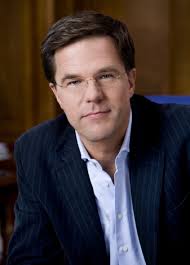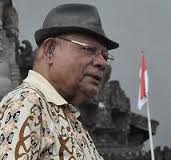Cornelis de Houtman, the first Dutch traveler to arrive in Indonesia and generations of other Dutch officials, traders and investors that came later, knew well how Indonesia could provide a lifeline for the Netherlands for hundreds of years, while making themselves very rich in the process.
And now, with Europe still struggling to cope with an economic downturn, Indonesia’s significance is back on the table, offering massive opportunities for the Dutch economy.
The Netherlands is sending its largest delegation since the independence of its former colony in 1945, a visit that has been dubbed by Dutch Prime Minister Mark Rutte as “the most serious effort to synergize the two countries that have deep historical ties for the sake of present and future mutual benefits.”
 Rutte, who leads 200 businesspeople representing more than 100 companies and research institutes on a three-day visit, will meet today with President Susilo Bambang Yudhoyono as the Netherlands aims to build a new chapter of deeper cooperations with Indonesia, while trying to offset incidents that have damaged relations with its former colony in recent years.
Rutte, who leads 200 businesspeople representing more than 100 companies and research institutes on a three-day visit, will meet today with President Susilo Bambang Yudhoyono as the Netherlands aims to build a new chapter of deeper cooperations with Indonesia, while trying to offset incidents that have damaged relations with its former colony in recent years.
“We have a long and difficult history together. But we must focus on the future, not only on the past, for the mutual benefits of the two countries,” Rutte told the Jakarta Globe in an interview in his office last week.
New era of relations
To show that the visit is historic and crucial, Rutte and Yudhoyono will sign an unprecedented joint declaration on comprehensive partnership between the two countries to take the relations to a new high.
The declaration will become an umbrella agreement for both countries to boost their cooperation further.
“The declaration marks the new era of our relations and cooperation. The partnership will focus on water management, logistics, infrastructure, food security and agriculture and education,” said Rutte, who will be accompanied by several key ministers and officials, including Minister for Foreign Trade and Development Cooperation Lilianne Ploumen and Minister for Agriculture Sharon Dijksma.
Rutte stressed that what is important for both the Netherlands and Indonesia is how the countries can benefit each other in the future.
Bernard Bot, an influential Dutch senior diplomat and former foreign minister, who declared in 2005 that the Netherlands acknowledged Indonesia’s independence in 1945, agreed that it’s time for both countries to come to terms with past and move ahead. “There’s so much we can do together for the sake of our future,” he said.
“It’s for real now,” Retno LP Marsudi, the Indonesian ambassador to the Netherlands, said in a separate interview.
Concrete offers
On water management, the Netherlands has funded a master plan for a massive sea wall in Jakarta Bay to prevent tidal flooding and to manage the flow of water within the capital.
The area behind the 35-kilometer long, 15-kilometer wide wall will be turned into office complexes, malls and other commercial buildings. There is even a plan to relocate all government offices to the area once it is completed by 2025.
“The master plan will be finished by early next year and groundbreaking will begin later in the year,” Retno said.
The Netherlands, Rutte said, has always had to deal with high water and sea waves in order to survive, considering that the country is partly below sea level. He added that his country would bring state-of-the-art technology for Indonesia to use.
“It’s time for the Netherlands to empower Indonesians by equipping them to fish, not by merely providing the fish,” said Jesse Kuijper, a businessman who will join Rutte to Jakarta and who heads the Netherlands-based Indonesia-Nederland Society.
On logistics, Dutch companies could help Indonesia build world-class seaports across the country while in agriculture several Dutch firms have offered their Indonesian counterparts investment and technology to enable the country’s farmers to produce food with the latest technology at a time when prices are rising and the nation is struggling to feed its people.
“The Netherlands is the world’s second-largest exporter of agricultural products, and we have many areas we can work together,” said Rutte.
In education, Indonesia has asked the Netherlands to treat Indonesian students as local students, so that they pay lower tuition fees. “It would be an excellent gesture from the Dutch government if the Indonesian students are treated as locals,” said Kuijper.
Difficult time in Europe
Rutte acknowledged that Europe and the Netherlands are facing tough times. “We have a difficult period at the moment. I do believe that we have made good strides but there is still a long way to go,” he said.
He said he admired Indonesia’s high economic growth of 6 percent annually. “We are jealous,” he said, smiling.
The latest figures from the Dutch Central Bureau of Statistics (CBS) show the Netherlands economy grew by just0,1 percent in the last quarter compared to the previous.
The CBS also reported that there were 46,000 fewer jobs in the third quarter.
“Indonesia can offer Dutch businesspeople a place for investment with a huge market of 240 million people and a growing middle class of over 100 million, as well as entry gate to the bigger market of Asean,” said Aleksius Jemadu, dean of Pelita Harapan University’s School of Social and Political Sciences.
He said the Netherlands now sees Indonesia as a successful democracy with long-term stability. “Relations between Indonesia and the Dutch should be more special — more than other ties — because we have a long history together. We can synergize, with Indonesia providing natural resources and markets and the Dutch providing capital, knowledge and technology,” Aleksius said.
He added that the Netherlands can offer Indonesia the opportunity to become a producer and not just a consumer. “It is now depending on Indonesia to realize the goals,” Aleksius said.
The Netherlands already is Indonesia’s second-biggest trading partner in Europe. In 2012, trade between the two countries was worth $4.7 billion.
Blast form the past
Relations between Indonesia and the Netherlands have experienced ups and downs, with two incidents proving particularly embarrassing for leaders of both countries in the last few years.
President Yudhoyono was forced to cancel his trip to the Netherlands in 2010 after a group of Moluccan independence activists filed a motion in the Dutch courts to arrest the president for gross human rights violations in Maluku and Papua.
Relations became tense after the trip was canceled, with many in Indonesia blaming the Dutch for insulting Yudhoyono.
The relations plunged into a new low when the Dutch government had to cancel the sale of Leopard tanks to Indonesia last year after the parliament voted to reject the deal. Indonesia then angrily turned to Germany to buy the same tanks.
Rutte, who loves Indonesian food like nasi goreng and sate and whose parents lived for some time in Indonesia, gave assurances such incidents would not happen again under his administration. “In fact, we are expecting President Yudhoyono to visit us next year,” he said.
About the Moluccan activists, Retno said everybody has the right to keep on dreaming. “But the question is whether or not it is realistic.”
She said relations between the two countries are getting better, with both sides understanding and trusting each other.
Retno also said the close connections between the people of the two countries meant Indonesia and the Netherlands could not afford to let relations cool.
Currently, 10 percent of the Netherlands’ 17 million population has direct or indirect links to Indonesia. And every year, Retno said, thousands of Indonesians travel to the Netherlands as tourists or for business, with the Dutch doing likewise.
Aleksius said fewer and fewer people in Indonesia see the Netherlands as a former colonial power.
“I don’t think it matters much now. People are becoming pragmatic, seeking concrete benefits and looking forward instead of being bothered by the past,” he said.
Source: The Jakarta Globe





